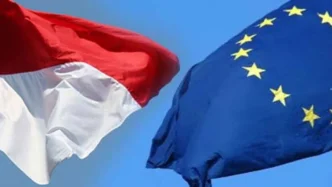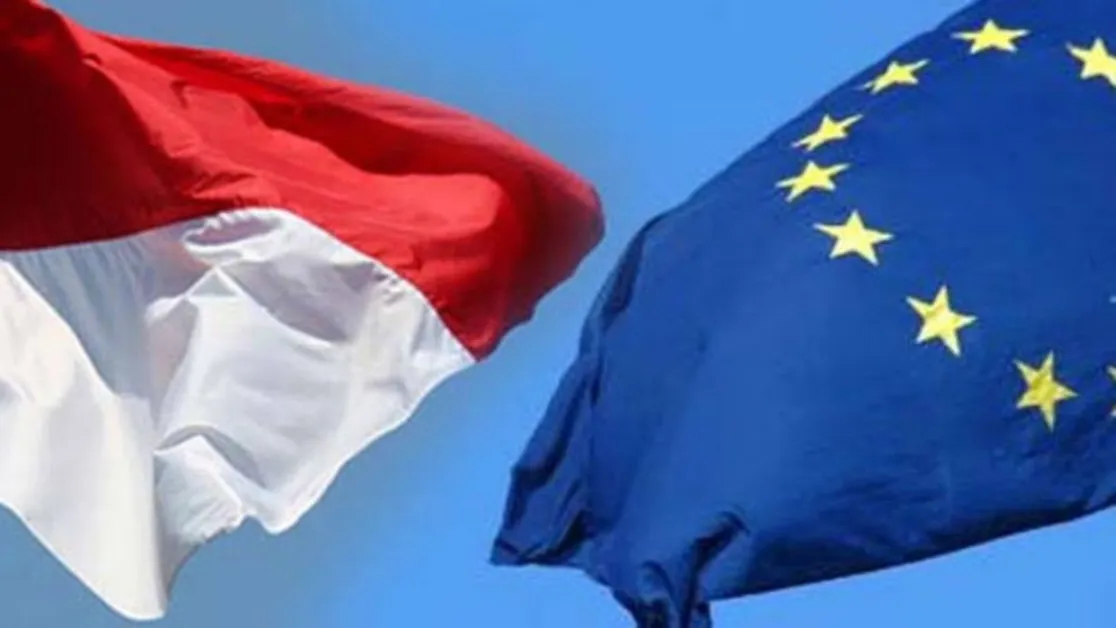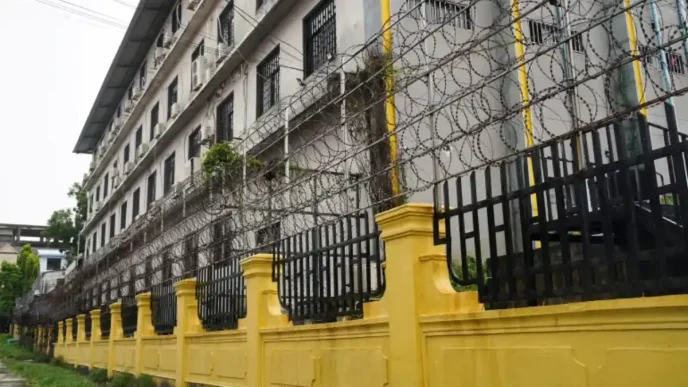Indonesia stands on the brink of finalizing a long-delayed free trade agreement with the European Union, a development that could significantly boost exports of palm oil, coffee, and cocoa. The breakthrough comes as the EU categorizes Indonesia as a “standard-risk” country under its new Deforestation Regulation (EUDR), a move seen as a positive signal by businesses despite lingering concerns from environmental groups and industry leaders hoping for a more favorable “low-risk” designation.
Trade Talks Reach Final Stage
Negotiations for the Indonesia-EU Comprehensive Economic Partnership Agreement (I-EU CEPA), which began in 2016, have repeatedly missed deadlines due to complex issues, including environmental regulations and market access. However, recent progress suggests a conclusion by mid-2025. Trade Minister Budi Santoso confirmed the momentum, stating, “Yes, we’re in the middle of finalization, and the EU seems to be easing now as we near the final stage” during a press briefing on May 27, 2025.
The EU’s decision to place Indonesia in the “standard-risk” category under the EUDR, rather than the more restrictive “high-risk” group, has been a key factor in smoothing the path forward. The regulation, aimed at curbing the EU’s role in global deforestation, bans imports of commodities linked to deforestation after 2020 and mandates traceability and geolocation data for affected goods. Only Russia, Belarus, North Korea, and Myanmar were designated as high-risk, a decision that has drawn criticism from environmental advocates who fear the benchmarking process may be politicized.
Business leaders in Indonesia, the world’s largest palm oil producer, have welcomed the exclusion from the high-risk category. However, many emphasize that the ultimate goal remains achieving “low-risk” status, which would reduce compliance costs and ease export processes, particularly for small- and medium-sized enterprises (SMEs). Moelyono Soesilo, chairman of the Indonesian Coffee Exporters and Industries Association (AEKI), told local media, “It’s a good thing for us, especially for our small- and medium-sized exporters still struggling with the high cost of traceability.”
Impact on Key Commodities
Indonesia’s palm oil industry, which shipped 3.3 million tonnes of crude palm oil to the EU in 2024, stands to gain significantly from the trade deal and the EUDR classification. Industry representatives hope to increase exports to 4 million tonnes annually once the new rules are fully implemented. Eddy Martono, chairman of the Indonesian Palm Oil Association (GAPKI), expressed cautious optimism, noting, “We were hoping Indonesia will be classified as low risk, that would bring greater perks.”
Under the EUDR, companies from standard-risk countries like Indonesia must conduct full due diligence on 3 percent of shipments, compared to just 1 percent for low-risk nations. Recent EU guidance, however, has offered some relief by clarifying that due diligence is not required for every shipment if goods are sourced from the same supplier and destined for the same buyer or corporate group. “I believe this should ease the burden quite a bit” said Martono, highlighting the potential for reduced administrative costs in recurring transactions.
The coffee sector, which sends about a quarter of its exports to Europe, also sees potential for revival. Demand for Indonesian coffee has stagnated since 2023, losing ground to competitors like Vietnam and Brazil. Easier compliance under the EUDR could help reverse this trend, though challenges remain for SMEs grappling with traceability requirements. Meanwhile, the cocoa industry faces additional pressures from soaring bean prices over the past year, which have already led some multinational buyers to halt purchases. Soetanto Abdullah, chairman of the Indonesian Cocoa Board, warned of further market contraction if compliance costs rise, asking pointedly, “Are chocolate lovers in Belgium, Switzerland, and Germany ready to give up chocolate?”
Environmental Concerns and Criticism
While businesses celebrate the EU’s decision, environmental groups have raised alarms over the implications of the “standard-risk” classification. A coalition of 40 NGOs penned an open letter to the European Commission, cautioning that premature conclusions on country categorizations could undermine the EUDR’s credibility and politicize the process. The benchmarking system, set to be formalized by June 30, 2025, is designed to minimize the EU’s contribution to global deforestation by imposing lighter checks on low-risk countries and stricter oversight on high-risk ones. Critics argue that Indonesia’s vast palm oil plantations, often linked to deforestation in regions like Sumatra and Kalimantan, warrant closer scrutiny.
Indonesia has consistently voiced concerns over the EUDR, particularly its requirements for geolocation data and traceability, which are set to take effect for large companies by the end of 2025. The regulation’s focus on commodities linked to deforestation after 2020 has been a sticking point in trade negotiations, as it places significant burdens on producers to prove compliance. If confirmed, the “standard-risk” label may offer a temporary reprieve, but environmentalists stress that it does not absolve Indonesia of the need to address underlying issues of land use and sustainability.
Broader EU Policy Shifts
The EU’s softened stance on Indonesia coincides with broader policy debates within the bloc, driven by economic uncertainty and geopolitical pressures. Chris Humphrey, executive director of the EU-ASEAN Business Council, described the development as both timely and expected, noting, “If Indonesia had landed in the high-risk category, it could’ve harmed the I-EU CEPA finalization.” He also pointed to proposed changes in the EU’s Corporate Sustainability Due Diligence Directive (CSDDD), another flagship green law requiring large companies to monitor environmental and labor practices across their supply chains, as a sign of business-friendly adjustments.
The CSDDD, which has yet to take effect, faces growing opposition from industries and even political leaders. French President Emmanuel Macron and German Chancellor Friedrich Merz have called for the regulation to be scrapped entirely, a move that could reshape the EU’s environmental agenda. While a European Commission spokeswoman insisted the policy remains “alive,” analysts suggest that pushback from Europe’s two largest economies may signal its eventual demise. Humphrey added that economic challenges, including the impact of recent US tariff policies, have intensified pressure on the EU to bolster competitiveness and strengthen ties with ASEAN nations like Indonesia.
Economic and Strategic Implications
For Indonesia, the evolving EU stance offers a window of opportunity to enhance its export capabilities while navigating the complexities of global trade and environmental standards. Muhammad Habib Abiyan Dzakwan of the Centre for Strategic and International Studies (CSIS) in Jakarta noted that the EU’s apparent retreat from stringent green policies could provide breathing room for Indonesia to reform its practices. However, he cautioned, “The current declining interest in the green trajectory may lend more space and time for Indonesia to improve itself, but it doesn’t mean that this room for reform will be there forever.”
The potential economic benefits of the I-EU CEPA are substantial. Enhanced access to the European market could drive growth in Indonesia’s agricultural sector, which employs millions and contributes significantly to GDP. Palm oil alone is a cornerstone of the economy, with exports generating billions annually—3.3 million tonnes to the EU in 2024 translated to roughly 120 billion Indonesian Rupiah (US$7.5 billion) at current market rates. Coffee and cocoa, though smaller in volume, are critical for regional economies in areas like Sumatra and Sulawesi, where smallholder farmers dominate production.
Yet, the trade deal’s success hinges on balancing economic gains with environmental commitments. Indonesia has faced international scrutiny for deforestation linked to palm oil expansion, with satellite data showing significant forest loss in recent decades. The government has introduced measures like the moratorium on new palm oil concessions and mandatory sustainability certifications, but enforcement remains inconsistent. If the EU’s “standard-risk” classification is seen as a green light without corresponding reforms, it may fuel further criticism from environmental groups and risk long-term market access.
Looking Ahead
As Indonesia and the EU edge closer to sealing the I-EU CEPA, the interplay between trade ambitions and environmental accountability remains a central tension. Businesses are eager to capitalize on reduced regulatory hurdles, while environmentalists warn against complacency. For now, the “standard-risk” label under the EUDR offers a pragmatic middle ground, but questions linger about whether Indonesia can—or will—push for the “low-risk” status that could unlock even greater export potential. As negotiations conclude, the world’s largest palm oil producer finds itself at a crossroads, balancing immediate economic gains against the pressing need for sustainable practices in a rapidly changing global landscape.
















